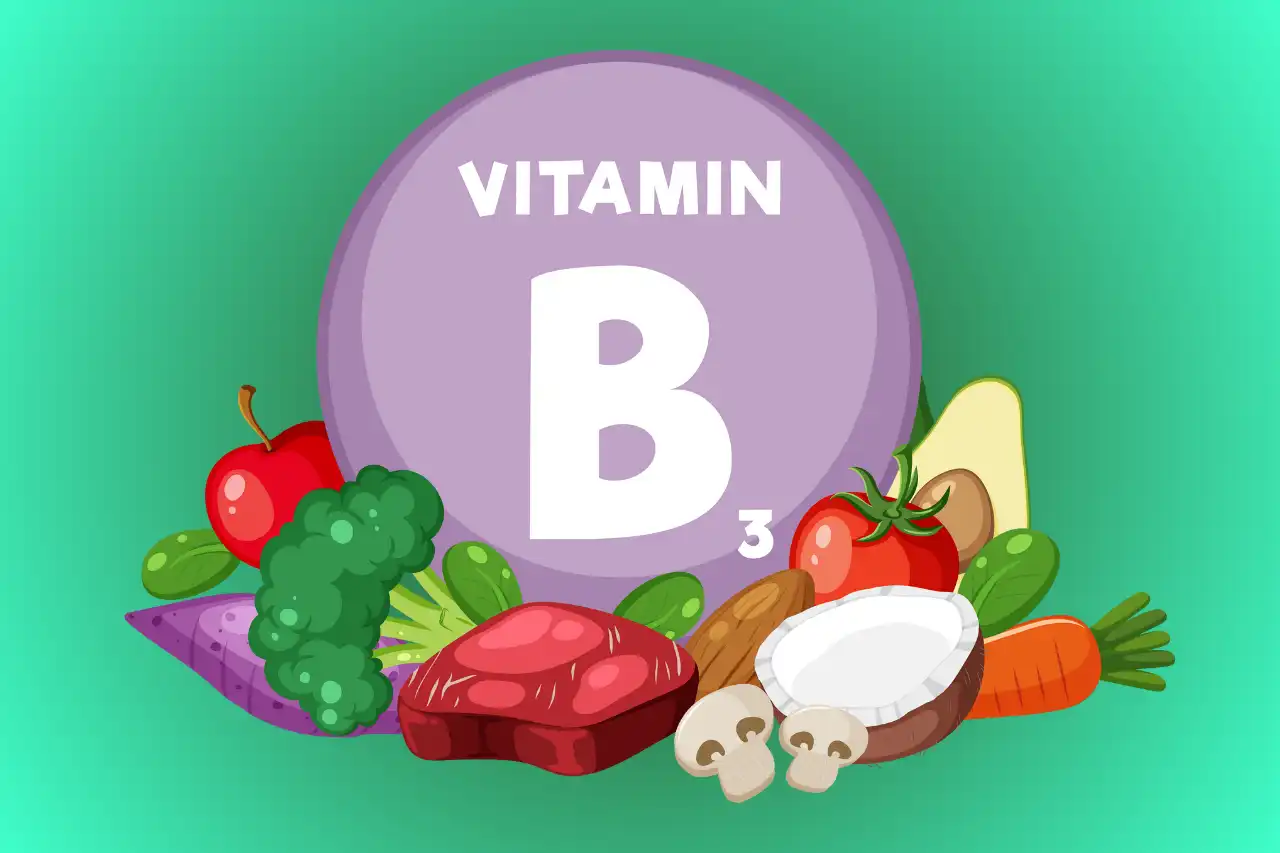-: VITAMIN – B1 :-
Vitamin B1 – The Spark Plug of Your Body…!
Ever wondered what keeps your body’s engine running smoothly? Meet Vitamin B1, also known as Thiamine—the unsung hero of energy production. Often it is called the “morale vitamin”.
Though small in requirement, its impact on your body is enormous!
Daily Requirements
Men
- Teens (9-18 years) – (0.9-1.2 mg) per day.
- Men 18+ years – 1.2 mg per day.
Women
- Women – 1.1 mg per day.
- Pregnant / Breastfeeding women – 1.4 mg per day.
Children
- Infant (0-6 months) :- 0.2 mg per day.
- Children (1-8 years) :- (0.5-0.6 mg) per day.
Function on different Organ
- Brain & Nerves
Details
Enhances memory, reduces chances of Alzheimer’s disease, improves concentration, and nerve signaling.
- Heart
Details
Supports healthy heart function by ensuring proper electrical signals.
- Muscles
Details
Helps in muscle contraction and coordination.
- Metabolism
Details
Converts carbohydrates into energy, keeping you active and energetic.
- Eye
Details
It is also useful to reduce the possibility of developing cataracts.
Symptoms incase of Deficiency
- Extreme Fatigue.
- Nerve Damage (Tingling & Numbness) – A sign of beriberi, a severe B1 deficiency disorder.Slow wound healing.
- Memory Issues & Confusion – Can lead to Wernicke-Korsakoff Syndrome, common in alcoholics.
- Bloody, dark, and sticky poop.Heart Palpitations & Breathlessness. Bloody, dark, and sticky poop.
- Loss of Appetite & Weight Loss.
- Immunity issues.
- Optic neuropathy – Disorders of the eye due to optic nerve damage.
- Leigh’s disease – Disorders related to the central nervous system.
Diagnosis
- Whole Blood Thiamine Test (Thiamine Pyrophosphate – TPP Test)
Details
To check Vitamin B1 levels, the most accurate test is the Whole Blood Thiamine Test (Thiamine Pyrophosphate – TPP Test), measured via HPLC or LC-MS/MS.
- Erythrocyte Transketolase Activity Test (ETKA)
Details
The Erythrocyte Transketolase Activity Test (ETKA) assesses functional deficiency, while the Serum/Plasma Thiamine Test provides a quick but less precise measure.
These tests help diagnose deficiency-related issues like fatigue, nerve damage, and heart problems.
Food Sources
Veg Sources
- Whole grains
- Brown rice.
- Oats.
- Whole wheat bread.
- Quinoa.
- Barley.
- Millet.
- Legumes
- Lentils.
- Chickpeas.
- Beans.
- Vegetables
- Spinach.
- Cauliflower.
- Asparagus.
- Fruits
- Oranges.
- Bananas.
- Avocados.
- Nuts & seeds
- Sunflower seeds.
- Flax seeds.
Non-Veg Sources
- Fish
- Salmon.
- Tuna.
- Lean meats
- Chicken.
- Pork.
- Dairy
- Milk.
- Yogurt.
- Other
- Eggs.
What if Overconsumption
Vitamin B1 is water-soluble, meaning excess amounts are flushed out in urine. However, extremely high doses (from supplements) may cause mild side effects like:-
- Stomach upset.
- Skin rashes.
- Dizziness.
Vitamin B1 might be small in quantity, but it’s mighty in function! From powering your brain to keeping your heart strong, it’s essential for everyday health. A well-balanced diet gives you all the B1 you need—no fancy supplements required. So add some B1-rich foods to your plate and keep your energy soaring…!!!












